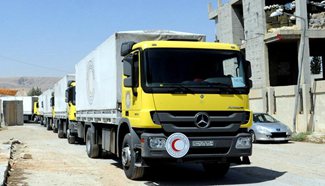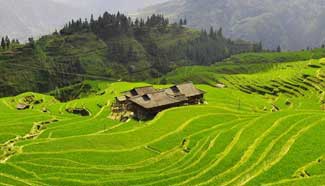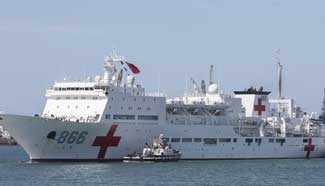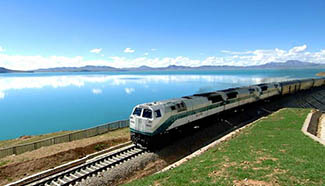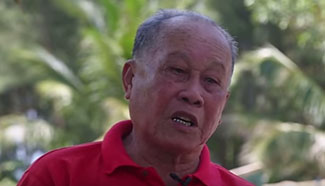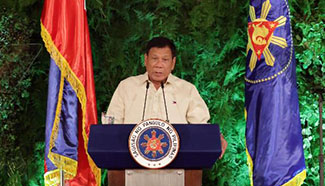by Emad Drimly, Osama Radi
GAZA, June 30 (Xinhua) -- In the poverty-stricken Gazan Strip's Al-Yarmouk market, hundreds of Gazans gather around piles of used clothes, searching for cheap garments.
Throngs of people opt for second-hand clothes as they meet their poor financial statuses due to rising unemployment.
Gaza has been under a tight Israeli blockade since the Hamas movement seized the territory by force in 2007.
The used clothes selling business flourished in Gaza following the siege, which rendered it difficult to import new clothes into the Hamas-goverened enclave.
The blockade has since propelled around 1.9 million people deeper into poverty as unemployment rates hit 42.7 percent.
According to United Nations agencies and other international organizations, over 60 percent of the Gazan population experience food insecurity, and hundreds of thousands depend on foreign food aid.
In addition, a recent World Bank report ranked the Gaza Strip in third place throughout the Arab region in terms of poverty rates, right after Sudan and Yemen.
Although Gaza currently receives increased goods from Israel than before, the second-hand clothes business is booming.
Before the market's small shops, merchants display used clothes, shoes, handbags and home appliances.
"These four T-shirts cost me 2.4 U.S. dollars," said Mahmoud Al-Sousi, a Gazan resident in his 20s, as he struggled to get out of the crowded market.
Al-Sousi said he frequently visits the market looking for suitable items at "extremely affordable prices."
"Gaza's poor economic conditions led me along with several others to purchase used clothes," Al-Sousi said, checking the condition of shiny-colored T-shirts on display. "Most Gazans can barely meet their basic food needs nowadays."
Ismail, another young man who only gave his first name, was visiting the market for the first time. His older brother convinced him to explore the used clothes stores there.
"I could not believe I could purchase three shirts in good condition for less than half the price of a new one," he said.
"I used to spend a lot of money on brand new yet low-quality imported clothes, but now I think I will buy most of my clothes from here."
Business has been good for Shaker Al-Sindawi, one shop owner.
"Our business is successful because we sell high quality clothes items at affordable prices," said Al-Sindawi. "We also have wealthier customers looking for specific brands which are currently unavailable in Gaza."
According to Al-Sindawi, the used clothes business is quite profitable, and several merchants have opened shops outside the popular Al-Yarmouk market and others, with some located in Gaza's upscale neighborhoods.
Most of the market's second-hand clothes are imported from Europe, mainly Belgium, and then shipped into the Gaza Strip through Israeli ports, Al-Sindawi said. "We also import used clothes from Israeli merchants."


